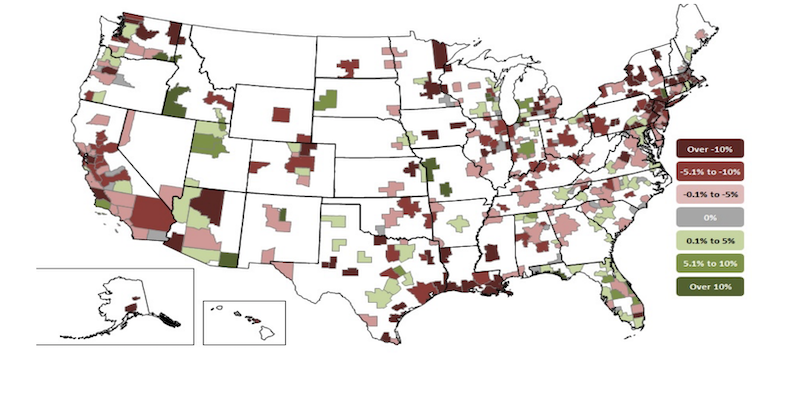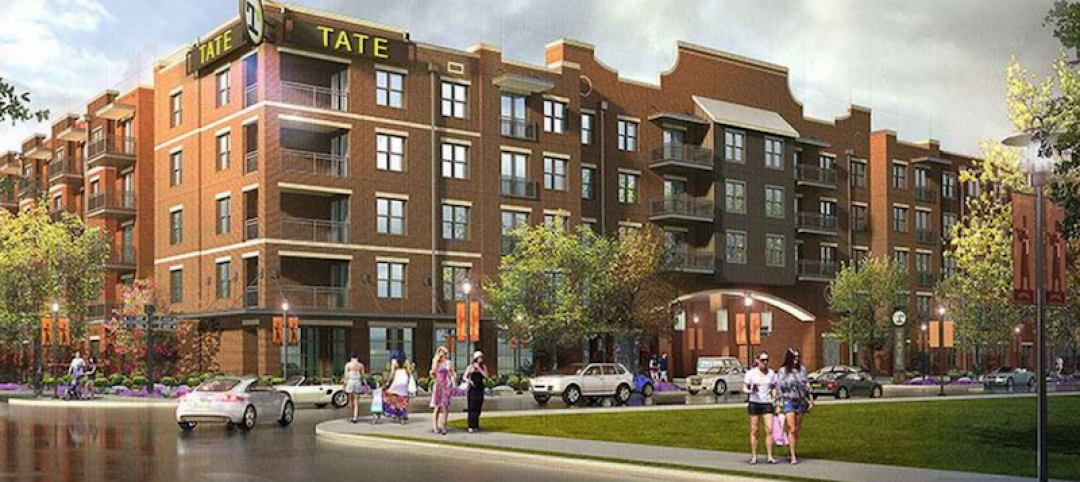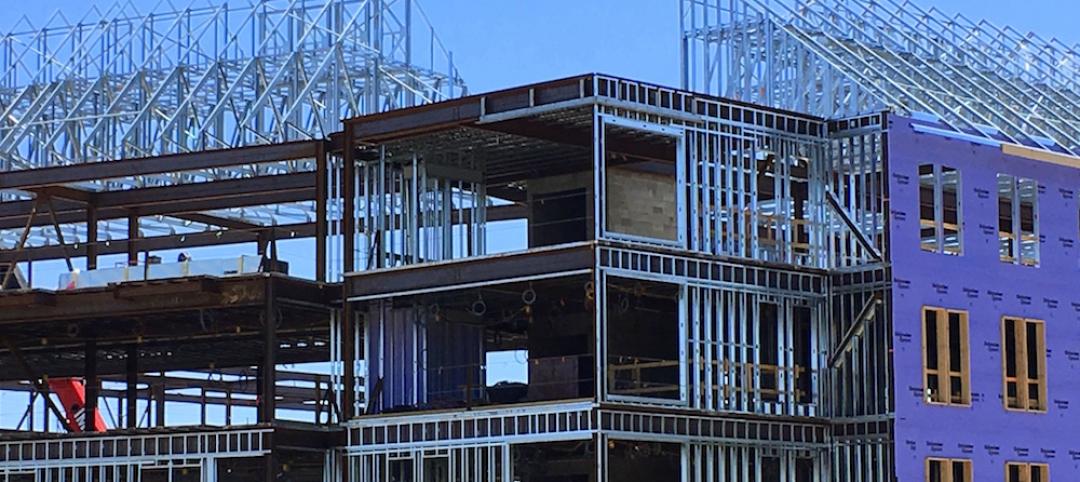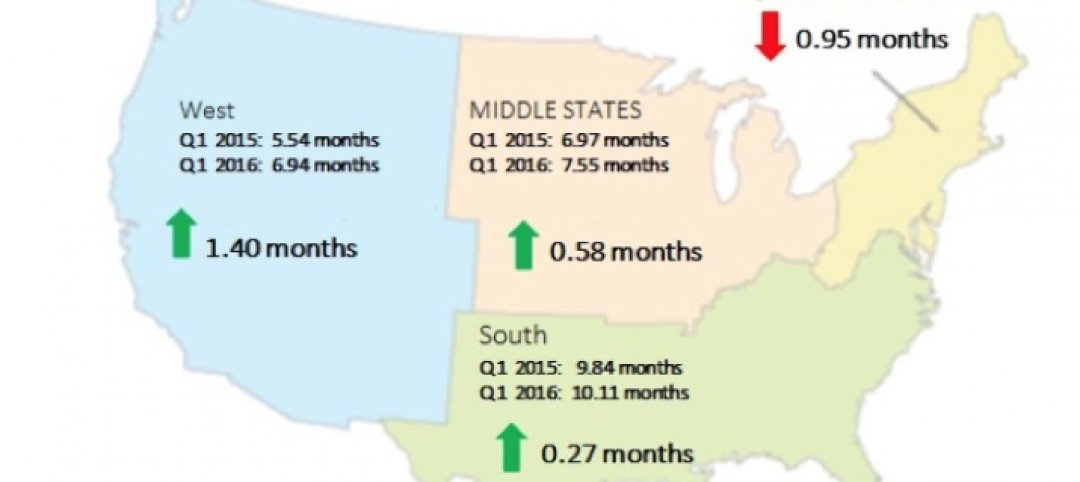Construction employment decreased in 241, or 67%, out of 358 metro areas between August 2019 and last month, according to an analysis of new government data that the Associated General Contractors of America released today. Association officials urged Congress to pass new coronavirus relief measures before leaving town.
“Although residential construction is picking up in many areas, public and nonresidential construction are shrinking,” said Ken Simonson, the association’s chief economist. “Project cancellations are spreading, and fewer new projects are starting up. That combination makes further employment declines inevitable unless the federal government steps up support for infrastructure.”
Simonson noted that construction employment was stagnant in 29 metro areas and increased in only 88 areas (25%) over the past 12 months. Nineteen metros had all-time lows for August construction employment, while 33 areas had record highs for August, in data going back to 1990 for most areas.
Houston-The Woodlands-Sugar Land, Texas lost the most construction jobs over 12 months (-22,800 jobs, -10%), followed by New York City (-21,700 jobs, -13 percent). Brockton-Bridgewater-Easton, Mass. had the largest percentage decline (-38 percent, -2,200 jobs), followed by Johnstown, Pa. (-34 percent, -1,000 jobs).
Indianapolis-Carmel-Anderson, Ind. added the most construction jobs from August 2019 to August 2020 (4,800 jobs, 9%), followed by Baltimore-Columbia-Towson, Md. (4,300 jobs, 5%). Niles-Benton Harbor, Mich. had the highest percentage increase (16%, 400 jobs), followed by Fond du Lac, Wisc. (15%, 500 jobs) and Walla Walla, Wash. (15%, 100 jobs).
Association officials urged Congressional leaders to not leave town until after the election without passing much-needed new coronavirus relief measures. In particular, the construction officials called on Congress to pass new liability protections for firms that are taking steps to protect workers from the coronavirus. They also urged Congressional leaders to boost investments in infrastructure and pass measures designed to preserve payrolls.
“The coronavirus and efforts to mitigate its spread have left our economy deeply wounded, depressing demand for many types of commercial construction projects,” said Stephen E. Sandherr, the association’s chief executive officer. “Congress can end the downward economic slide and help create needed new construction jobs by passing measures to boost demand and protect honest employers.”
View the metro employment 12-month data, rankings, top 10, and map.
Related Stories
Multifamily Housing | Aug 12, 2016
Apartment completions in largest metros on pace to increase by 50% in 2016
Texas is leading this multifamily construction boom, according to latest RENTCafé estimates.
Market Data | Jul 29, 2016
ABC: Output expands, but nonresidential fixed investment falters
Nonresidential fixed investment fell for a third consecutive quarter, as indicated by Bureau of Economic Analysis data.
Industry Research | Jul 26, 2016
AIA consensus forecast sees construction spending on rise through next year
But several factors could make the industry downshift.
Architects | Jul 20, 2016
AIA: Architecture Billings Index remains on solid footing
The June ABI score was down from May, but the figure was positive for the fifth consecutive month.
Market Data | Jul 7, 2016
Airbnb alleged to worsen housing crunch in New York City
Allegedly removing thousands of housing units from market, driving up rents.
Market Data | Jul 6, 2016
Construction spending falls 0.8% from April to May
The private and public sectors have a combined estimated seasonally adjusted annual rate of $1.14 trillion.
Market Data | Jul 6, 2016
A thriving economy and influx of businesses spur construction in downtown Seattle
Development investment is twice what it was five years ago.
Multifamily Housing | Jul 5, 2016
Apartments continue to shrink, rents continue to rise
Latest survey by RENTCafé tracks size changes in 95 metros.
Multifamily Housing | Jun 22, 2016
Can multifamily construction keep up with projected demand?
The Joint Center for Housing Studies’ latest disection of America’s housing market finds moderate- and low-priced rentals in short supply.
Contractors | Jun 21, 2016
Bigness counts when it comes to construction backlogs
Large companies that can attract talent are better able to commit to more work, according to a national trade group for builders and contractors.

















